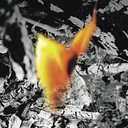Learning from Failure
After finishing the 2015 Boston marathon, Gianclaudio realized his ID was gone and, not speaking English, he could not find his way to his people or his hotel. Being clever, he went for the the airport directly, but he was taken for by many homeless or worse. The story of Gianclaudio P. Marengo’s survival has a lucky ending: he was recognized for the civilized but lost Italian he was and returned to people he knew by an officer who said he did “what anyone would have done”. Except that they didn’t and often don’t. It takes real character and empathy to reach out to the dispossessed.
In 1912 John Keenan as not so lucky. Not Without Peril tells the haunting story of how the inexperienced surveyor dressed too light for the changing Mt. Washington weather and suffered overexposure and dehydration.
He was seen, the first time within 24 hours, by an experienced man who should have been able to help. However, he was asking for strange landmarks and it sounded like he was not being truthful. The man pointed him toward civilization and left him with two miles to go on the road. For several days, appearing physically sound but too deranged to be understood as needing help he was spotted several times. Eventually massive manhunts searched for him, but he was not found. His parents never got a body back.
This phenomena of studying failures and near failures explains the fascination with Rob Hall’s expedition on Everest — where living people were also left behind — even though people on the same mountain in the same time on a better team survived. My racing coach used to be really bothered by the relative lack of fame for Ed Viesturs, a leader that does it right.
Multiple major negative events disable. Leadership matters. Planning for supplies required during disaster matters. Communication with those able to assist matters.
The book 1491 begins to examine what really happened to the indigenous peoples of America. When Roger Williams arrived, multiple rounds of disease had already wiped out much of the population. He was seeing remnants of a vast civilization. Early Roger Williams seems to still detect the civilized nature of the indigenous culture.
Sometimes Roger’s own language gets in his way. When he calls men “another of Adam’s degenerate seed” that is actually a complement. His worldview is that all men descended from Adam are sinners, all born degenerate in some way until redeemed by the sacrifice of Christ. Much as when evangelicals today feel obligated to communicate what the Bible defines as sin so that people realize a need for the offered redemption, Roger was calling all men degenerate, including indigenous people. In contrast, some English claimed the natives were not human at all. So in claiming they are descendants of Adam, he is saying they are fully human and can be redeemed just like anyone else.
Long decades of trying to Anglicize people while simultaneously treating them as less than human, combined with rampant loss of needed resources to support their lifestyle, changed people. Native peoples that were not desperate in the 1630’s surely were by late in Roger Williams’s life. Like the dehydrated John Keenan they were unable to obtain assistance in any meaningful way. They were striking out in ways that seemed strange and inappropriate to Englishmen, and likely to prior generations of indigenous. Desperate times lead to desperate people. It is in that context Roger Williams’ succumbed to calling the people that burned houses and towns, barbarians. It would be a mistake to think of it as broader or more meaningful than that.
The book Decoding Roger Williams lets Roger Williams speak one last time through a manuscript only recently deciphered. The document shows many of his critics to have been fabricating lies about him but it also documents disappointing language where Williams joins many in his day referring to the indigenous people as barbarians. The later is a symptom of the larger tragedy unfolding.
My mathematics professor taught that some famous mathematicians made their most egregious errors right after the “it is clear that”. The word “barbarian” means “it is clear that this person is uncivilized. It seems to me that those that call another “barbarian” are the most likely to be barbarians themselves.

